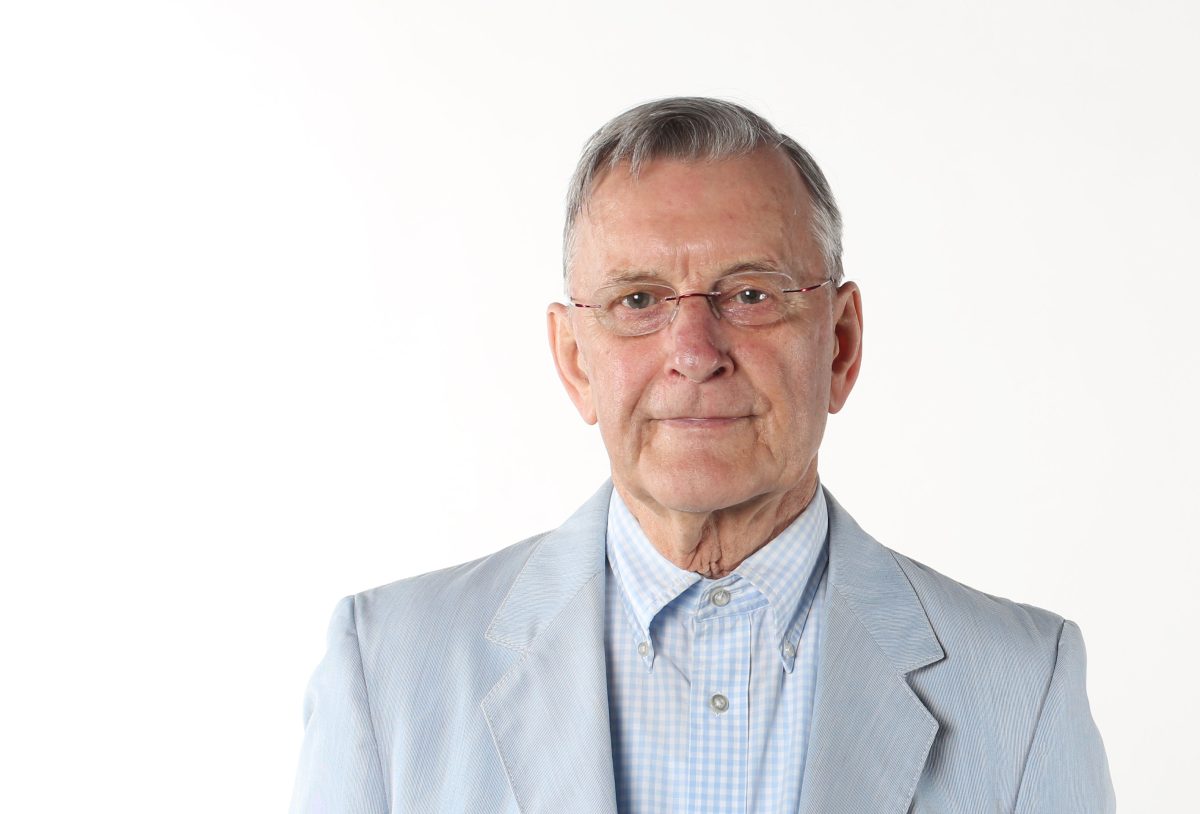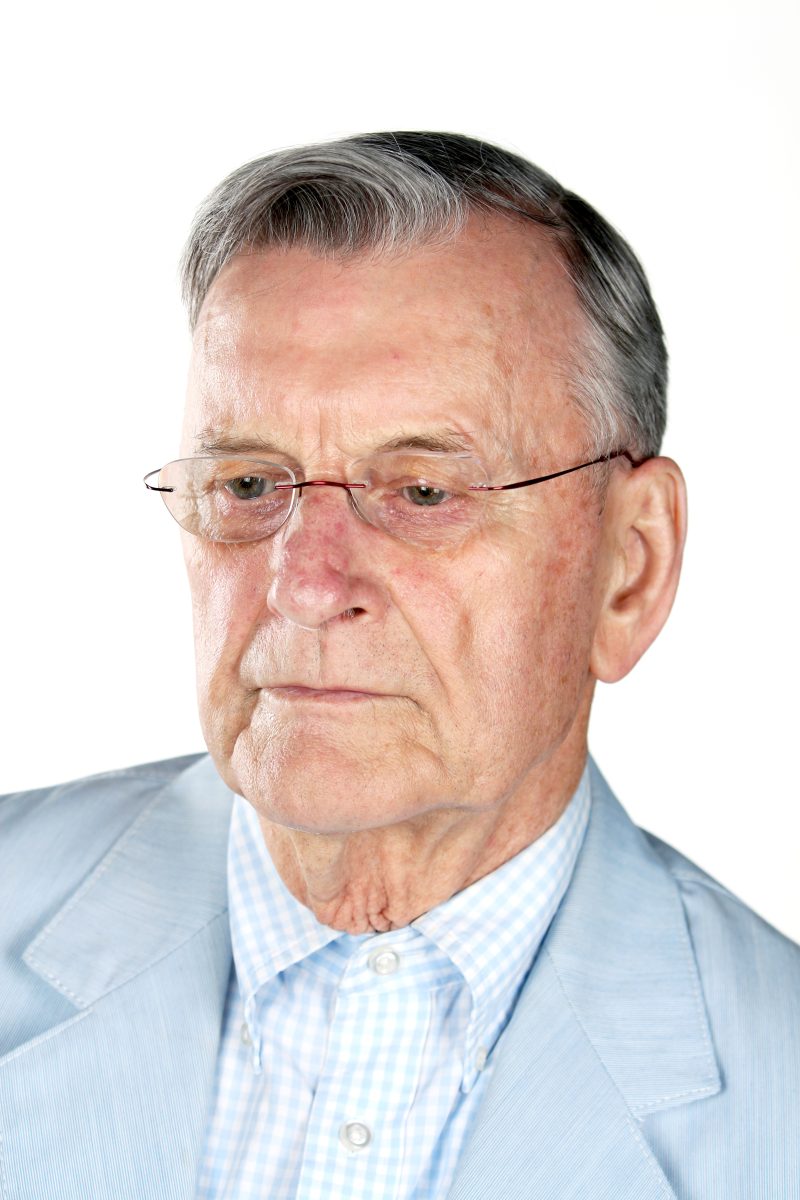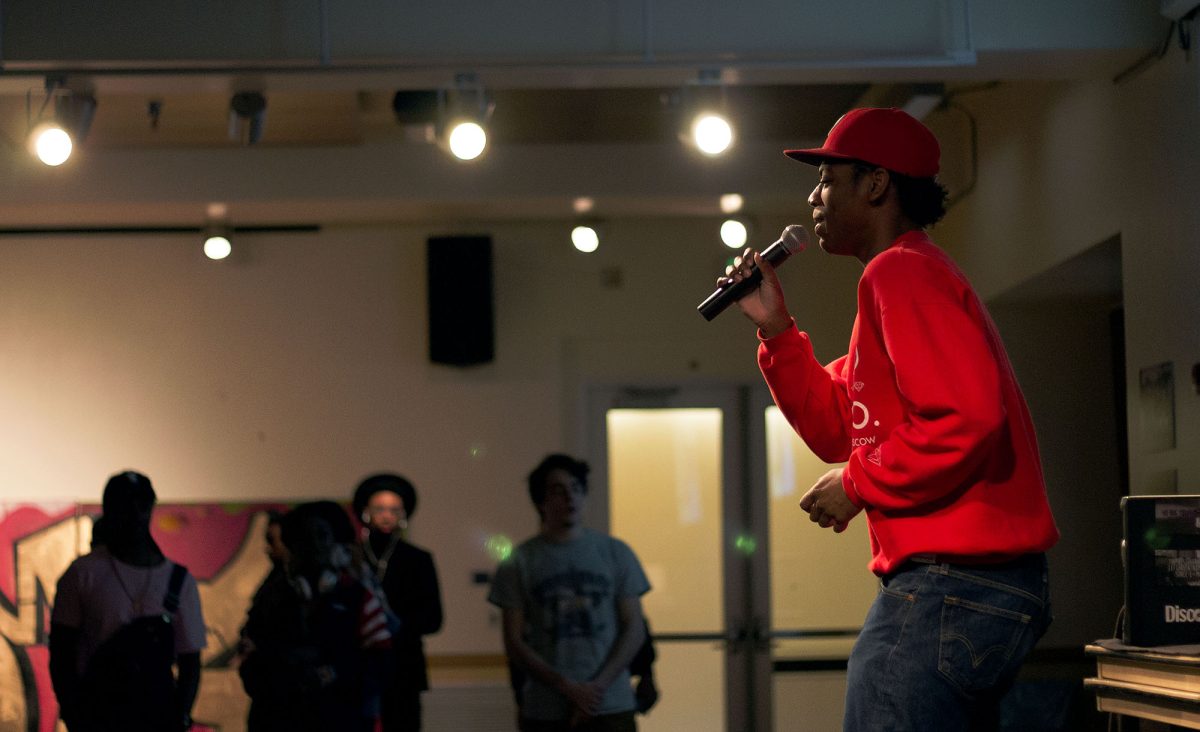One man’s story of growing up innocent in Nazi Germany.
“What are we Germans supposed to do?” Helmut Plant says. “We read these books, and it’s terrible what we did to those poor, naked people. What I don’t understand, I guess, is the lack of human compassion. The Jews didn’t do anything to us. They fought in World War I, and all they wanted was to be accepted fully as Germans.”
Plant, 83, is a short, frail man, but it’s his blue eyes that betray his inner youth and liveliness. Always well put together, dressed in a patterned button-down shirt paired with either a cardigan or blazer. His voice is quiet and thickly accented; it’s almost too heavy to hear him. But, it’s with strength and care that his stories carry back to 1942 and the sounds of an impending air raid.
“You sit there, and you don’t think about it being the enemy dropping bombs. You just don’t think at all, you’re paralyzed, you sit there. If it hits you, you’re dead. But if not, you wake from that mental and psychological stiffness or frozen state,” Plant explains, “I was scared. I hid behind my dad’s chair where he was reading the paper; he didn’t move a muscle.”
The air raids became more frequent; sirens would wake him and his family. (Today, the siren tone is no longer used in Germany for fear of bringing back traumatic memories.) But the morning after the bombings, Plant remembers just going out with some of his friends looking for bomb splinters.
“We heard that the planes dropped fire and the bombs were so hot they burned under water. We couldn’t believe that, but we found the splinters, big ones and small ones,” Plant says. “That was the war for us.”
Plant was born in Munich, 1932. As the son of a house cleaner and a World War I veteran, Plant says his family had no involvement or interest with the Nazi regime. Many were like them, just going on with their daily lives.
It was impossible, however, to ignore the propaganda. Signs of “Die Jüden sind unsere Unfall” (The Jews are our misfortune), “Wheels Must Turn for the Victory,” and warnings for citizens to not speak aloud about the war for fear of spies were pasted all over the city and train cars. To this day, Plant can still recite these banners he saw.
“When I was little I’d spell it out, but it didn’t sink in,” he says.
Plant remembers encountering a Jew wearing a Judenstern, the required yellow armband that was a byproduct of Hitler’s anti-Semitic regime, and innocently asking for it. It was one of the first times he began to understand the pervasive and personal nature of Hitler’s doctrine. “But, we knew he couldn’t take it off; it was sewn on.”
More than signs and armbands, Hitler’s true dream was that Third Reich would last a thousand years and eradicate the Jews. And, he created a system to train the next generations so there would always be soldiers in place. From ages ten to 14 every German child was drafted into the Deutsche Jugend, the German Youth. The 14-18 age group were placed in Hitler Jugend or Hitler Youth. After 18, they were drafted into the army with most of their training already complete. Plant remembers the Deutsche Jugend well.
“It was a lot like boy scouts, our uniforms were practically the same. We marched around and raised money for the war effort.”
In 1943, nearly all of Munich was evacuated, Plant and the rest of the city’s students traveled to nearby mountain villages because of the air raids. He and the rest of the children stayed in a hotel with two professors. What stuck with Plant was how the evacuation itself was managed.
“It was amazing how organized that was,” he says. “Munich was a big town, and we all moved.”
He stayed there until 1944 when he moved to another village with his parents. The Germans were already withdrawing, the Allies not far behind. The retreating army soon passed by Plant’s village. “They told us that the Americans, or Amis, as we called them, would be coming. ‘They won’t do anything to you, just stay put, and wave a white flag. Don’t worry about the Americans, they’ll be fine to you.’”
When the Americans did show up, Plant says there was an immediate difference between the two armies. The Americans had working vehicles, which excited Plant. “The sound of the engine was filled with gasoline, which the Germans didn’t have any more of,” he says.
Beyond the mechanization, the Americans themselves looked different to the young Plant; he noticed their nicely pressed uniforms and their fat cheeks proved they had access to food. Most importantly, they were also kind to the boys.
“There was a GI who waved to us boys and asked if we wanted a ride, and he drove us up and down the main street in the village. It was the greatest thing you could do. We didn’t know any English, but we knew the word ‘cowboy.’ When we said it to him he pretended to swing a lasso. We had the best impression of them,” Plant laughs. “Then, eventually, that was the end of the war.”
Plant continued schooling until the 1950s, then served as an interpreter for the Americans. After realizing how nice the people were, he decided he wanted to move to America — which he did in 1952 and was drafted into the American Army for two years. After he was discharged,a he went back to studying. Once he got his degrees, he became a German professor at the University of Oregon.
Plant considers himself to be a German-American, and has never had any bad experiences with being German in America. With all the time that has passed after the war and discussion of German guilt, Plant feels guiltless for the atrocities that occurred during the war, including on behalf of his parents.
“The second question Jewish people will ask me is what about your parents? They were not a part of that. I know that people will say ‘that’s what they all say,’ but it was a fact from my perspective,” he says.
He realizes, however, that it was because of his young age that he was spared from witnessing and participating in war cruelties. If he was just five years older, he would have had to, but as a civilian, there wasn’t much that he could do or even understand regarding the war. The only information that he received was controlled by the government.
“That was one of the things that was overlooked in terms of the Holocaust for instance; you look back with all the knowledge and videos about the Holocaust and you think, ‘how could they not have known about that?’” he says.
It wasn’t until 1945 after the war when the footage the army took of the concentration camps was shown all over Munich; Plant had never even heard about it.
“Me, at the age of 16, I had to see them. We were shocked,” he explains.
Plant says he feels that when the second World War and the Holocaust is discussed, the entirety of the German race is portrayed as Nazis, but not everyone was a member of the SS or the party. The youth were unwilling participants who were thrown into that world. At the same time, Plant still feels like he should try and do something to atone. He does so by caring for a 90-year-old Jewish woman named Alice, and he calls her his “wiedergutmachen” friend, which translates to his “making good again” friend.
Plant now spends time reading more about the Holocaust, trying to fit together his experiences growing up and the information recorded of that time period. He thinks that it’s good that the next generation of Germans are aware of their history.
“That was a very terrible episode, and they have to face up to it. As time progresses there’s no immediate guilty parties, other than those direct persons. It’s just a history lesson that Germans have to accept now,” Plant says.
That history lesson was hard for Plant and his generation to come to terms with. Plant remembers distinctly in 1946, Munich, when somebody wrote on a wall: ‘Dachau, Auschwitz, Bergen-Belsen. I’m ashamed to be a German.’ The next day someone wrote below it ‘Goethe, Schiller, Beethoven. I’m proud to be a German’ as an answer.
“Of course, that wasn’t the issue,” he says, “on one hand we can be proud of the music, but then there’s the Holocaust part of our history. Both things are German.”
Reconciling his past as a child in Nazi Germany has been a lifelong pursuit for Plant. (Gordon Friedman/Ethos)















